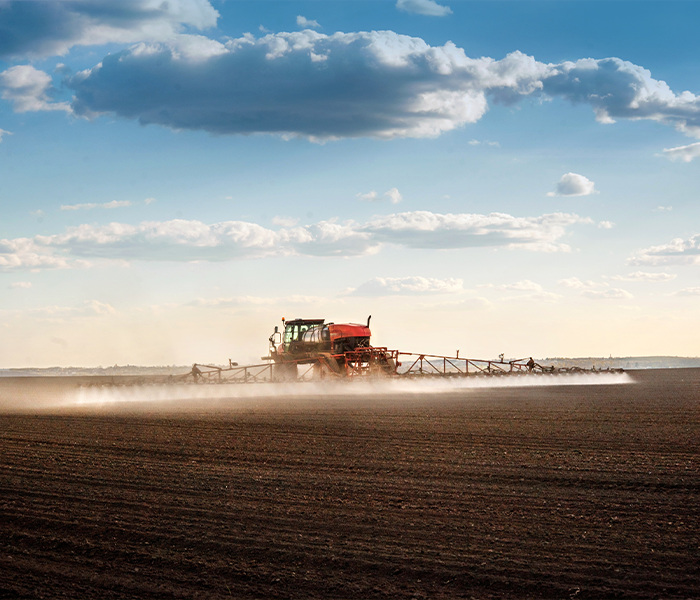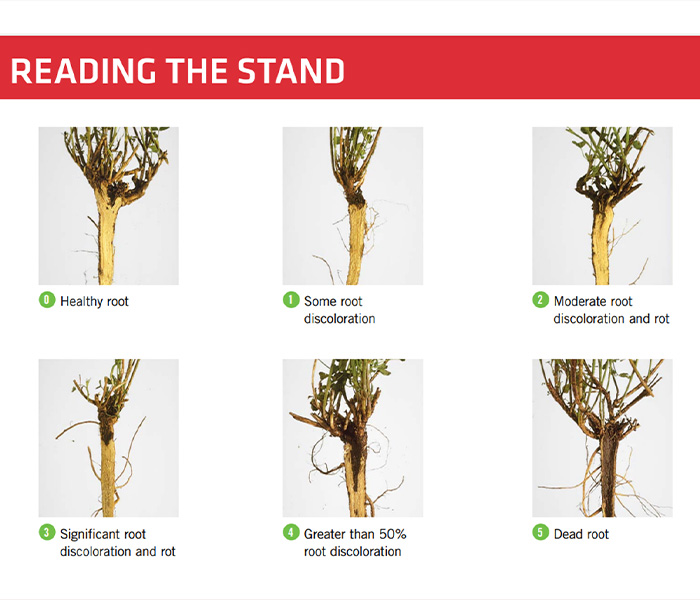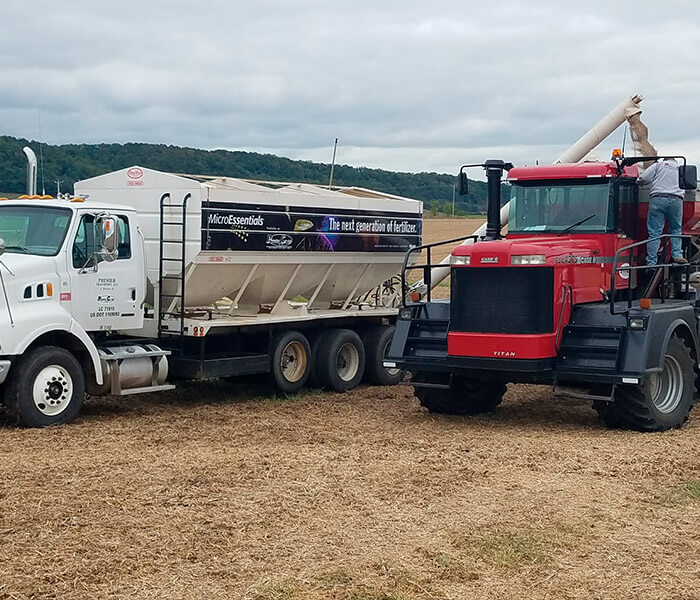Planning Ahead.
Planning ahead can be the key to success. Following the guidelines below can prevent some major catastrophes in establishment.
1. Select the proper site
Alfalfa should be grown on what is considered the best soil on the farm. A deep, well-drained soil is needed for the alfalfa to develop a vigorous root system. Poor drainage will increase disease problems, result in more winter kill and cause lower yields and shorter stand life.
2. Get weeds under control
If there is heavy weed pressure in the area, take the season ahead of planting to clean up these weed problems. Even though there are several herbicides labeled for use in alfalfa, it is easier to kill most weeds, particularly perennial broadleaves, when there isn’t the concern of trying to kill weeds without killing alfalfa.
3. Fertilize and lime according to a soil test
The proper pH and fertility is essential for good seedling vigor. A pH of 6.8 to 7.0 is recommended for alfalfa. If lime is needed, apply the recommended amount of lime before soil cultivation for conventional planting, and at least six months ahead of seeding if no-till methods will be used. Be sure to apply the recommended amounts of phosphate and potash at seeding. Two pounds per acre of boron should also be applied.
4. Select a recommended Croplan Variety
There are large differences between varieties in yield potential, pest resistance and winter hardiness. One of the biggest mistakes that can be made is to pay attention to all the other details in establishment and then decide to try and save a little money by selecting uncertified seed or seed of an inferior variety.
Steps for successful seeding
Once the preparations are made, the process of seeding is relatively simple. There are a few details to pay attention to in order to get a strong establishment of alfalfa.
1. Seed at the proper time
Alfalfa can be seeded in both the spring and fall.
2. Place the proper amount of seed into a good seedbed
Alfalfa should be seeded at the rate of 15 to 18 pounds of seed per acre for a pure alfalfa stand. The alfalfa can be seeded into a prepared seedbed or seeded no-till into a killed sod. If no-till methods are to be used be sure all existing vegetation has been chemically killed. Seed should be placed 0.5- to 0.25-inch deep. If a no-till drill is used be sure to take a few minutes to check the seeding depth. These drills are heavy enough that seed can easily be planted too deep for acceptable emergence.
Also be sure to calibrate the drill or other seeder used for planting. Do not take for granted that the calibration chart on the drill or in the manual are correct. Without checking the seed flow, all of the seed might be put on only half of the field, or you might have to travel over the field again to get all of the seed distributed. A few minutes before planting can save a lot of time.
If grasses must be seeded with the alfalfa to reduce soil erosion during stand establishment. It is recommended to use 15 pounds of alfalfa with 6 pounds of either orchardgrass or tall fescue or 4 pounds of timothy. If tall fescue is used, be sure to use an endophyte-free variety. The endophyte can still result in reduced performance in animals grazing or consuming hay from infected tall fescue, even if it is in a mixture with alfalfa. The effect of the endophyte may be reduced because of the alfalfa, but animal performance will be superior when an endophyte-free tall fescue, orchardgrass or timothy variety is used.
3. Control weeds during establishment
Competition from weeds can be one of the major factors limiting alfalfa stand establishment. Herbicides can be used to reduce this competition. If a grass is seeded with the alfalfa, grass herbicides cannot be used.
For more tips on alfalfa establishment evaluating your current stands, please contact your local Premier agronomist.

Ken Jahnke
Agronomy Sales Manager




